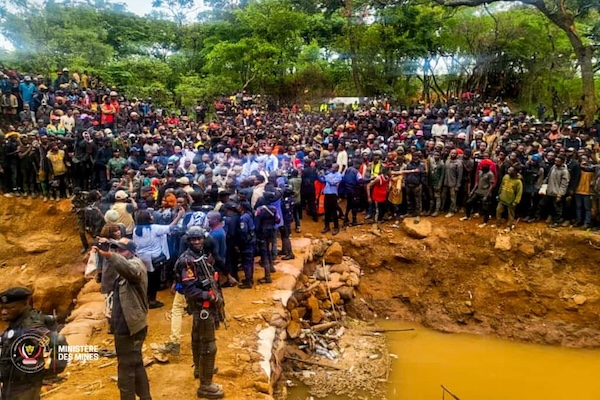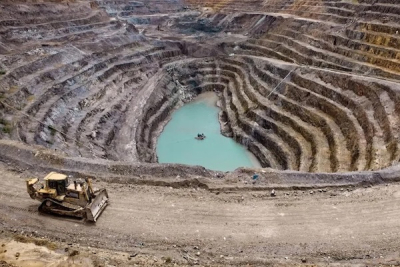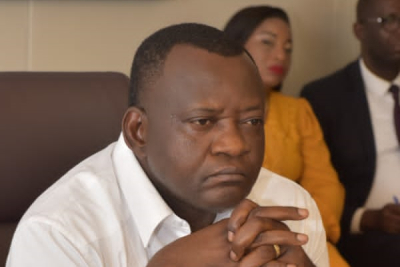The Democratic Republic of Congo's mines minister announced the creation of 64 artisanal mining zones on Monday, Nov. 17.
The announcement was made during a crisis meeting in Kolwezi, held two days after a November 15 accident at the Kalando mine that killed around 40 artisanal miners.
"I can officially tell you today that at least 64 artisanal mining zones have been cleared for you," Mines Minister Louis Watum Kabamba said.
Identifying these zones was the first part of a plan presented by President Felix Tshisekedi during a June 13 council of ministers meeting to curb "the perverse effects denounced in artisanal mining" in Lualaba province, as soon as possible."
Among the problems identified by the head of state was the invasion of industrial mining concessions by artisanal miners, generating cohabitation tensions. The Kalando site is one example. Located 42 kilometers southeast of Kolwezi, it sits on a permit (PE 2116) belonging to Chemical of Africa (Chemaf), which said it ceded the permit to Pajeclem Congo Consulting Sarl on July 21. Artisanal miners access it only on weekends under a "social" authorization, a situation conducive to tension.
President Tshisekedi had requested that the identified zones be "likely to meet the expectations of the sector." The ministry said the 64 zones were determined following joint work with specialized services and validated after several technical field missions.
Minister Watum Kabamba said the decrees establishing these zones have already been signed. It is not yet known when the sites will be made available or when work can begin.
State cobalt monopoly central to formalization plan
Mining in the zones is expected to be conducted in collaboration with the state-owned Entreprise Générale du Cobalt (EGC), a subsidiary of Gécamines, which holds a monopoly on trading artisanal production of strategic minerals like cobalt.
EGC said it has implemented a model to align the artisanal sector with international standards to facilitate the commercialization of its production. The model relies on deploying "controlled mining areas, equipped with weighing devices, direct payment mechanisms and digital tracking systems, guaranteeing that each ton is traceable from the artisanal site to the processing plant."
To allow EGC to exercise its monopoly fully, President Tshisekedi has demanded the strict application of all rules, including sanctions, against processing plants and entities that illegally purchase artisanal cobalt, bypassing EGC's legal monopoly. He also called on Gécamines and its subsidiary to strengthen their financial collaboration. EGC needs funding to offer artisanal miners competitive prices and cash payments to capture a significant share of production.
In a bid to attract investors, EGC presented its first production of 1,000 tons of what it called "structured, ethical and traceable" artisanal cobalt in Kolwezi. Despite the recent accident, artisanal activity continues at Kalando "to maintain social stability.”
Pierre Mokoko & Ronsard Luabeya










